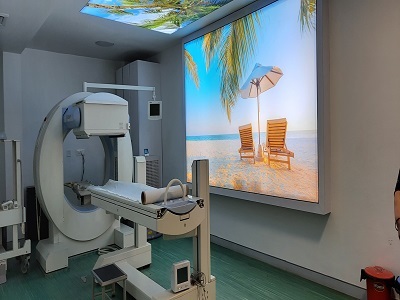A Gamma Scan, also known as scintigraphy, is a medical imaging test that helps doctors see how your organs and tissues are working. Unlike X-rays or MRIs, which show structure, gamma scans provide functional information — meaning they show how well things are working inside your body.
The process begins with a small, safe dose of radioactive tracer being introduced into your body, usually by injection. This tracer travels to the specific organ being studied — such as your bones, thyroid, kidneys, lungs, or heart. A special gamma camera then detects the radiation from the tracer to create detailed images.
🔍 What Conditions Can It Detect?
-
Bone infections, fractures, or cancer spread
-
Thyroid nodules or overactive thyroid
-
Kidney function or drainage problems
-
Lung blood clots (pulmonary embolism)
-
Heart blood flow and pumping efficiency
Doctors often recommend gamma scans when symptoms are unclear, or when they need more information about how an organ is functioning.
🩺 Is It Safe?
Yes. Gamma scans use very low levels of radiation, and the tracer typically leaves your body within a day or two. The test is non-invasive, painless, and usually takes 30–60 minutes.
Gamma scans are an essential tool for early diagnosis and treatment planning. If your doctor recommends one, it’s because they want the clearest picture of how your body is working — from the inside out.








